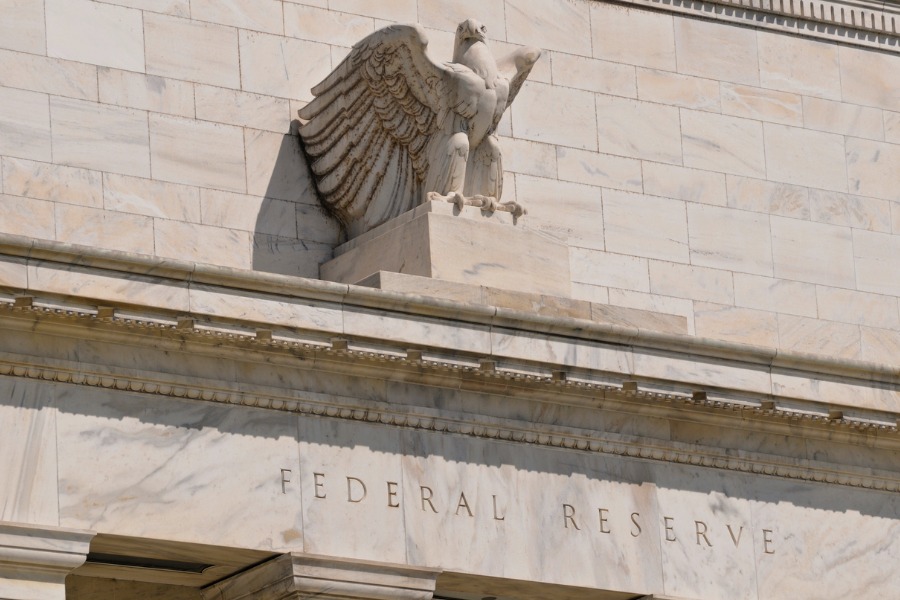

Chinese companies may be enticed to sell a $1 trillion pile of dollar-denominated assets as the US cuts interest rates, a move which could strengthen the yuan by up to 10%, according to Stephen Jen.
The chief executive of Eurizon SLJ Capital said currency is now the biggest risk that’s not priced in properly across markets — and the yuan may play an outsized role.
“Think an avalanche,” Jen said about the impact of the repatriation flows. The yuan “will appreciate and probably be allowed to — five to 10% would be modest and acceptable to China.”
The theory goes like this: Chinese firms may have amassed more than $2 trillion since the pandemic in offshore investments, parked in assets that pay higher rates than yuan-denominated ones, according to Jen. When the Federal Reserve lowers borrowing costs, the appeal of dollar assets will erode and potentially spur a “conservative” $1 trillion of flows back home as China’s rate discount with the US narrows.
Jen, known for his work on the “dollar smile” theory, predicts the Fed will cut rates more aggressively than markets are expecting if US prices continue to cool. That, along with an overvalued greenback, America’s twin deficits and prospects of a soft landing, is bolstering his conviction that the dollar will decline.
The end result is a Chinese currency that could well march higher against the greenback. It traded around 7.12 per dollar in the onshore market on Monday, having been as weak as almost 7.28 in July.
The rally could be even bigger if the People’s Bank of China refrains from stepping in to soak up dollar liquidity, London-based Jen said in an interview last week.
The case for yuan gains looks even stronger now after Fed Chair Jerome Powell said at the Jackson Hole symposium on Friday that the time has come for the US to cut its policy rate.
However, such a move isn’t likely to happen immediately after the first Fed cut. It may occur when declines in the dollar accelerate amid a so-called soft landing scenario, or where inflation eases in the US without triggering a recession, Jen said.
His view chimes with that of Guan Tao, a prominent economist at Bank of China International Ltd. who argued the yuan risks surging if a scenario similar to the collapse of the yen carry trade plays out.
The fallout of the yen unwind was so big that it rippled across everything from stocks to credit and emerging currencies. A crash in the yuan-funded carry trade — which involves traders borrowing the currency cheaply and selling it against higher-yielding alternatives — could unleash new waves of panic especially across Asian markets.
Still, the PBOC can iron out wild swings, Jen said. Beijing has always been cautious with aggressive gains in the yuan as it can dent export competitiveness and undermine the already sluggish economic recovery.
China’s foreign-exchange watchdog is already on guard as it gauges the impact of a stronger yuan on exporters, people familiar with the matter said. And some strategists have argued that carry trades centered around a weak yuan continue to make sense given China’s mixed economic fundamentals.
The PBOC also has plenty of measures to steer market expectations. Most recently it has used tools to encourage currency stability, such as its daily reference rate for the onshore yuan and adjustments in the amount of foreign-currency deposits banks need to hold as reserves.
Also, given the gap between Chinese and US yields remains wide despite some gradual contraction of late, corporates may not sell their foreign-exchange holdings anytime soon.
Others estimate China’s corporate cash pile to be somewhat lower than Jen does.
Macquarie Group Ltd. estimates Chinese exporters and multinationals have amassed over $500 billion in dollar holdings since 2022. Australia & New Zealand Banking Group Ltd. pegs the number at $430 billion.
“The pressure will be there” on the yuan to rally, Jen said. “If we just assume half of this amount is the money that is ‘footloose’ and easily provoked by changing market conditions and policies, then we are talking about $1 trillion worth of fast money that could be involved in such a potential stampede.”

The move to charge data aggregators fees totaling hundreds of millions of dollars threatens to upend business models across the industry.

The latest snapshot report reveals large firms overwhelmingly account for branches and registrants as trend of net exits from FINRA continues.

Siding with the primary contact in a marriage might make sense at first, but having both parties' interests at heart could open a better way forward.

With more than $13 billion in assets, American Portfolios Advisors closed last October.

Robert D. Kendall brings decades of experience, including roles at DWS Americas and a former investment unit within Morgan Stanley, as he steps into a global leadership position.
Orion's Tom Wilson on delivering coordinated, high-touch service in a world where returns alone no longer set you apart.
Barely a decade old, registered index-linked annuities have quickly surged in popularity, thanks to their unique blend of protection and growth potential—an appealing option for investors looking to chart a steadier course through today's choppy market waters, says Myles Lambert, Brighthouse Financial.
